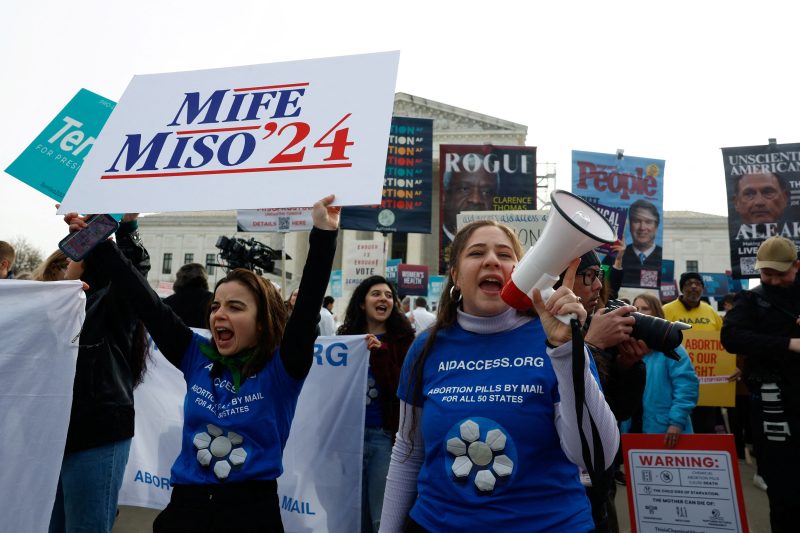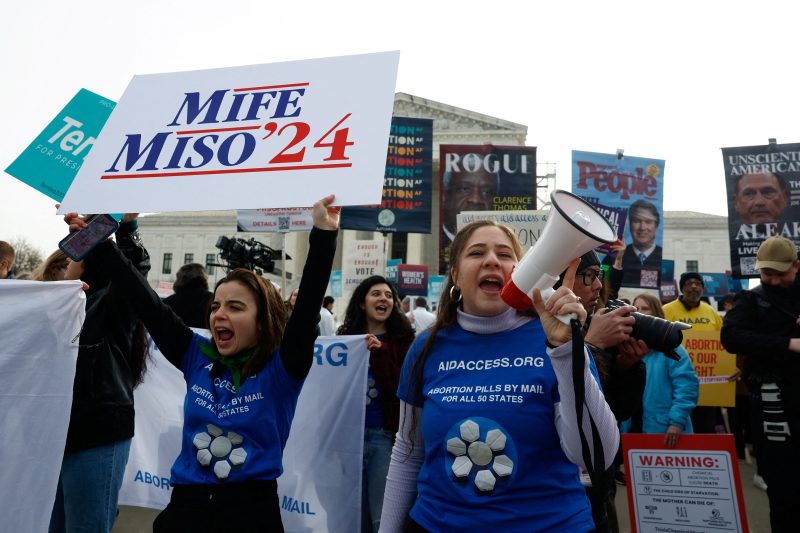
Just this week, America got another reminder of the potential political energy of the fight over abortion access. In Alabama, Marilyn Lands won election to the state legislature after focusing her campaign on abortion and in vitro fertilization. In 2020, Donald Trump narrowly won the district, but Lands clobbered her opponent by more than 20 points.
There have been numerous such results since the Supreme Court invalidated Roe v. Wade in 2022. Multiple special elections have swung to the left as Democratic candidates have embraced the issue of abortion access and state-level referendums on the subject have uniformly seen the pro-access side victorious. The 2022 midterms, expected to yield a lopsided Republican victory, were instead far more muted.
But there’s a lingering, unanswered question: Will President Biden’s reelection campaign see a similar benefit?
New polling conducted for Fox News offers useful insights. (Before getting into the numbers, it’s worth noting that Fox’s polling arm has a well-deserved reputation for fairness and accuracy, however one feels about the channel itself.) The poll asked respondents whether they supported two laws bolstering access to abortion: one protecting it at the federal level and the other protecting the drug mifepristone, which can end a pregnancy. In both cases, majorities supported those protections — including a majority of independents.
For space reasons, some of the graphs in this article use shorthands for two groups: White evangelical Protestants and White suburban women. Overall, women were slightly more supportive of federal protection for abortion access; the difference on the mifepristone question was negligible.
A separate question offered a more nuanced set of options for respondents. But it, too, showed that most Americans think abortion should be legal at least most of the time — and nearly all Americans regardless of party thought that abortion should be legal at least some circumstances, like rape, incest or to save the life of the mother.
The poll also asked about specific windows of legality, one of the considerations with which Republicans are struggling. Regardless of the time frame, at no point did a majority of respondents back a ban. As the window during which abortion might be allowed was expanded, though, support increased — except among Republicans and evangelical Protestants.
All of this points to abortion access being a winning issue for Democrats. But, of course, there’s an important qualifier: Many voters won’t be casting their presidential ballots solely on the issue of abortion.
The Fox News poll also asked people to rank the importance of various issues in influencing their presidential vote and then asked them to identify which candidate, Biden or Trump, would do a better job addressing that issue. Most respondents said that Biden would be better on abortion than Trump (the black “overall” dot sits to the left of the middle line on the first chart below), with Democrats identifying it as a more important issue than did Republicans. On other issues like immigration and the economy, Trump has an advantage.
If we reverse the presentation here, showing the responses by demographic group, you see the challenge for Biden and Democrats. Of the seven issues included in the poll — obviously not all possible issues — abortion has the second-lowest percentage of respondents saying that it is “extremely” or “very” important to them. Even among Democrats, abortion is tied for third out of the seven issues. Among White suburban women, a demographic group that Democrats hope will be motivated by abortion access, it’s ranked sixth.
That includes both “extremely” and “very” important. If we isolate out those who say it is “extremely” important, the picture changes somewhat — at least among Democrats. No issue was more likely to be identified as extremely important by Democrats (though differences of a point or two are not significant given the poll’s margin of error).
Among women overall, 49 percent identified abortion as an extremely important issue in deciding their presidential vote. Four other issues saw higher percentages of women identifying them as “extremely” important to their vote.
The question of enthusiasm is a central element of abortion politics. One reason those state referendums went as they did, and one reason that so many special elections, like the one in Alabama, shifted to the left is that there is more energy among supporters of abortion access. There is more motivation for them to turn out to vote in support of that access. In low-turnout elections, again like the one in Alabama, that can have a big effect.
Political coalitions are formed out of people with differing and at times competing priorities. There are an enormous number of people for whom abortion access is a key motivator this November. There is also an enormous number of people for whom the economy is. There is an enormous number of people for whom both are.
The question that’s most worth asking, then, isn’t whether the issue of abortion will pull people to the polls to vote for Biden (or against Trump). It will. The question is whether the scale of that pull will be significant and whether it will outweigh other motivators for other voters, particularly in a presidential election year.
That is a very difficult question to answer.

